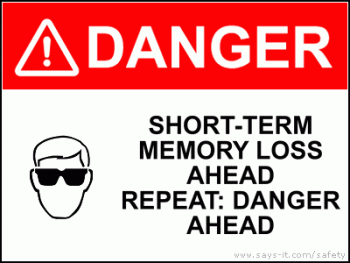It was now ten years ago that I wrote a poem recently called “Silent Movie” and when I was publishing it on my Writing the Day poems site, the software reminded me that I had already written a poem with that title. I looked and sure enough I not only had used that title but it was a very similar poem. I changed the title of the earlier poem and revised the newer poem.
It’s not just poems. Writing on this blog about Michelangelo, I was reminded by the software that I had already written about Michelangelo and the Sistine Chapel the previous year. More revision.
Damn, but this trend is disturbing. These gaps in my memory are increasing lately. I remember a routine Woody Allen used in his nightclub years that included a line about him spending a summer writing Great Expectations and then realizing that Charles Dickens had already written it.
That poetry site now has more than 900 poems (a number that surprises even me) so it’s not shocking that I sometimes forget what I had written years before.
I forget names a lot , like the names of actors in films, but also names of people I have known for decades.
My very short-term memory is dreadful. I will open a new tab on the browser and then forget why I did it. I walk down to the basement and then I can’t remember why I went down there.
Are you starting to feel worried for me?
It’s not a relief that one of my sons recently said “Who was the other guy, not Morgan Freeman, in The Shawshank Redemption?” I know a lot about films and could picture his face. Yes, we could look it up on our phones easily, but we wanted to pull it out of memory because we knew that we knew it. We could picture him. He was with Susan Sarandon for years. They met when they were in Bull Durham. He won an Oscar for Mystic River. All those synapses were firing, but no name. Bob? No. *
I write a lot about memory. I know that memory loss with aging is natural. It is normal to experience short-term forgetfulness, such as the inability to remember a person’s name you met recently. Memory loss does not mean dementia and Alzheimer’s disease, but you hear so much about those topics that you consider it.
That information stored in long-term memory from events that occurred years ago tends to remain easier to recall. I remember the first day of school, my freshman year dorm room and a girl in a Shakespeare class who I never even spoke to but stared at twice a week all semester.
Aging means a gradual loss of brain cells that affects the way we store and retrieve information. Our short-term memory progressively declines, but I keep reading that memory loss from aging does not typically affect normal functioning, nor does it necessarily get worse over time.
It’s no wonder that we boomers and younger generations have made maintaining memory an industry. I have written about and you have read about exercising your mind with puzzles, mind games, and challenging reading or classes and the need to exercise your body for better mental function, perhaps because of improved circulation.
Eat lots of antioxidants, omega-3 fatty acids, vegetables and fruits, tea and dark chocolate, cold-water fish, freshly ground flaxseed, walnuts, less alcohol, less stress, practice meditation and yoga, or at least buy some Ginkgo biloba, DHA, zinc, lutein and zeaxanthin and take it daily.
I think what I really need is more time. More quiet. More opportunities to focus. Less input for better output. I find all kinds of good thoughts and memories come while taking a shower, weeding the garden or raking the leaves.
*Footnote: That Shawshank day, I went outside and just walked around the yard looking at the plants and all of a sudden, I found Tim Robbins, who was there all along.








